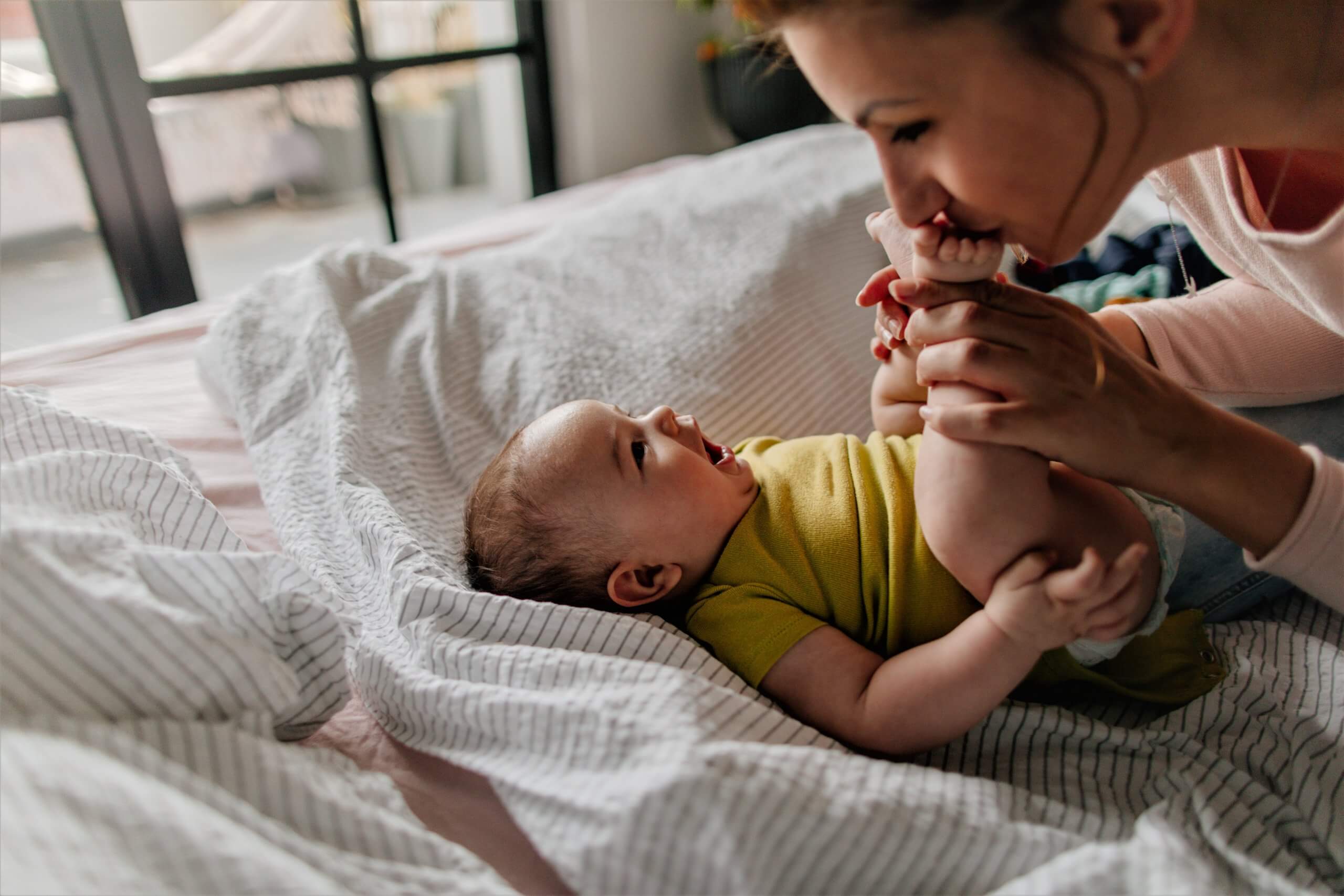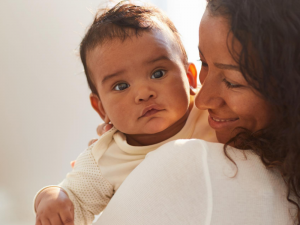
Bringing Up Great Kids (BUGK) in the First 1000 Days Program
‘Bringing Up Great Kids (BUGK) in the First 1000 Days Program ‘ blog article was written by the Parenting and Early Years Team at Australian Childhood Foundation.
The period from conception to the end of the child’s second year has become known as “the first 1000 days”. Around the world governments have seen the importance of this period of time and have created initiatives to support expectant and new parents. The UK initiatives have a broad and general focus on pre- natal and post-natal development (Leadsom, Field, Burstow & Lucas, 2013; WAVE Trust, 2013, 2015), while others have focused on issues such as nutrition (Save the Children, 2012; Thousand Days, 2016) or on specific populations such as Aboriginal children (Arabena, HowellMuers, Ritte, & Munro-Harrison, 2015; Arabena, Ritte & Panozzo, 2016).
The first 1000 days is critical to the attachment relationship between parent and child and has an impact on the health and wellbeing outcomes for the child later in life.
Research on the importance of this period identifies that a warm, responsive, mindful, reflective, and supportive parenting style as providing the best outcome of children’s overall development while the children are young and impacts positively on their later life skills and health (Kochanska, Coy, Tjebkes, & Husarek, 1998). The original Bringing Up Great Kids program was designed as a responsive, reflective, respectful and mindful program to support parents in their relationships with their children and to embark on their parenting journey in a non-judgemental safe space. All materials and resources come from a strength based philosophy that has all members of the family at its core.

The Australian government were also interested in the first 1000 days and had been looked at Australian literature such as “The First Thousand Days” An evidence paper. Put together by the Murdoch Children’s Research Institute and ARACY supporting international literature and material from the Frameworks Institute.
The Federal Government, Department of Social Services approached the Australian Childhood Foundation to investigate a joint project to support expectant and new parents in these important first thousand days.
The result is a new adaptation of our evidence based successful Bringing up Great Kids Program, focusing on the first 1000 days.
The ‘BUGK in the First 1000 Days’ program emphasises the importance of living in a nurturing and safe environment, and seeking all the supports needed. The program presents access to knowledge about brain development, understanding how children grow and what they need, family relationships and an opportunity for parent/carers to reflect on their own childhood and how to connect to their children.
The program has been developed into an easy-to-use facilitator’s package for use by professionals working with parents/carers or supporting any other adults involved in parenting unborn and new babies in the first 1000 days of life.
Written as five chapters that can be flexibly delivered over a length of time in a format that best meets the needs of both expectant and new parents and the facilitator.
Each chapter has been divided into four sections:
- Set up – contains all the information the facilitator needs to prepare for the session.
- Introductory and connecting activities.
- Pre and post birth activities.
- Mindful/Reflective activities and self-care
Facilitators can choose to facilitate a group just for expectant parents or just for new parents or a combination of both. The manual in the facilitator package supports facilitators with ideas, activities, and resources for each of the groups.
The ‘BUGK in the First 1000 Days’ program materials and resources will support parents to:

- Develop an understanding of the importance of the first 1000 days and the needs of babies pre-birth and young children during this period.
- Learn more about brain development both during pregnancy and after and the influence on all aspects of the growing child.
- Understand the origins of parenting styles and recognising the importance of a positive start in the first 1000 days.
- Identify the importance of giving positive nurturing messages to babies and young children and how to achieve this.
- Discover how to overcome some of the obstacles getting in the way of being the kind of parents/carers they would like to be; and,
- Explore ways for parents to take care of themselves and to find support when they need it.
The program focusses on building positive relationships and interactions between parents and their unborn babies as well as parents and their infants and young children.
It works from a child-centred perspective and aims to resource parents to:
- Identify and evaluate the source of their parenting approach and philosophy;
- Develop an increased understanding about the ‘messages’ that they communicate to their child through how they take care of themselves, their values, beliefs and attitudes;
- Increase their ability to understand and acknowledge the impact of these messages on their child;
- Develop skills in identifying and managing their stress associated with parenting; and develop wellbeing and self-care practices and
- Seek further professional assistance about their self-care and parenting if required.
If you are interested in completing training to be able to deliver BUGK in the First 1000 days in your area of practice, you can click here to learn more.
Reference List
Arabena, K., Ritte, R. and Panozzo, S. (2016). The Australian Model of the First 1000 Days. Melbourne, Victoria: Australian Institute of Family Studies. https://www2.aifs.gov.au/cfca/knowledgecircle/ discussions/children-and-young-people/australian-model-first-1000- day
Arabena, K., Howell-Muers, S., Ritte, R. & Munro-Harrison, E. (2015). Making the World of Difference: The First 1000 Days Scientific Symposium Report. Parkville, Victoria: Onemda VicHealth Group, The University of Melbourne. http://www.onemda.unimelb.edu.au/ sites/default/files/docs/First%201000%20Days%20Scientific%20 Symposium%20Report.pdf
Centre for Community Child Health (2017) The First Thousand Days. An Evidence Paper – Summary
Kochanska, G., Coy, K.C., Tjebkes, T.L. and Husarek, S.J. (1998). Individual differences in emotionality in infancy. Child development, 69(2):375-90.
Leadsom, A., Field, F., Burstow, P., & Lucas, C. (2013). 1001 Critical Days: The Importance of the Conception to Age Two Period. WAVE Trust. UK
PricewaterhouseCoopers Consulting (Australia) (PwC) and partners. (2019) Strong Foundations: Getting it Right in the First Thousand Days
Save the Children (2012). Nutrition in the First 1000 Days: State of the World’s Mothers 2012. Westport, Connecticut: Save the Children. https://www.savethechildren.nl/Uploaded_files/Publicaties/ STATEOFTHEWORLDSMOTHERS50488b0e621b5.pdf
